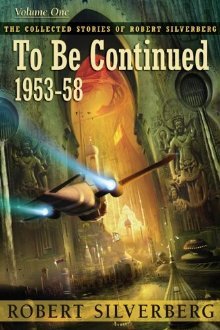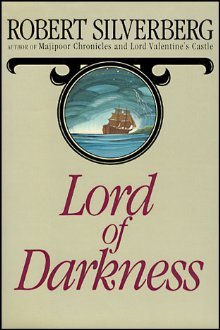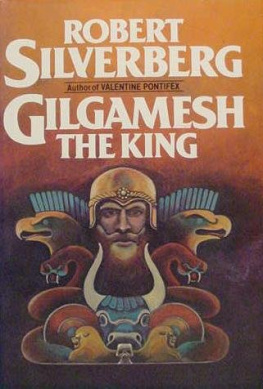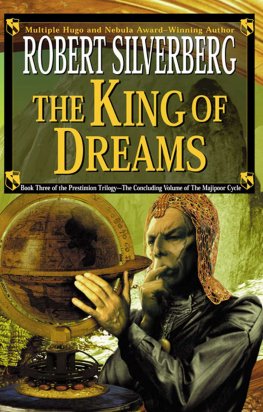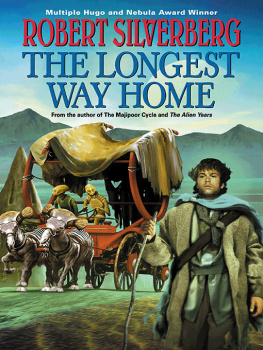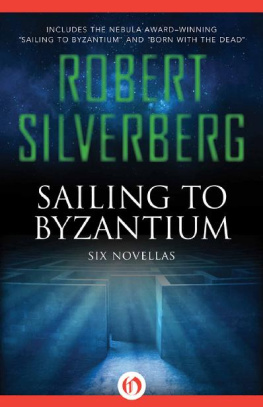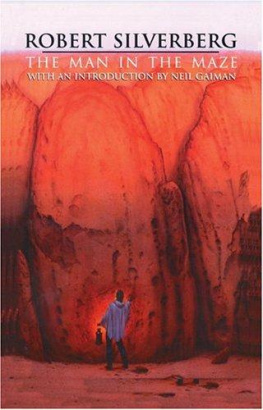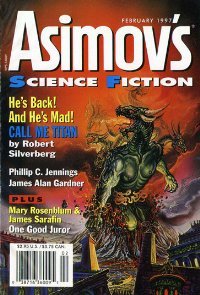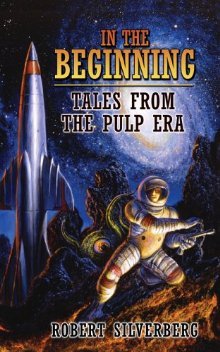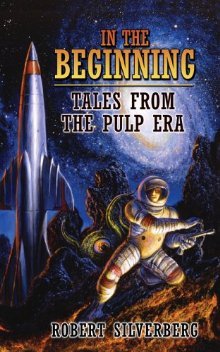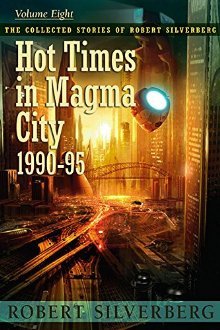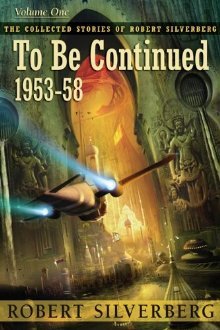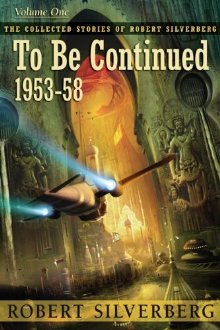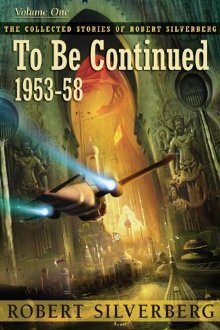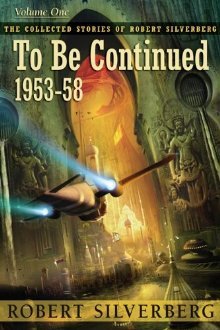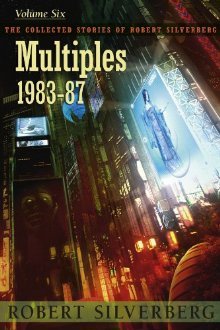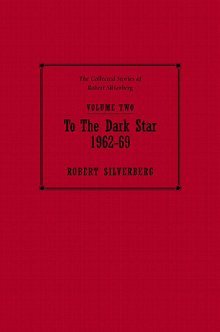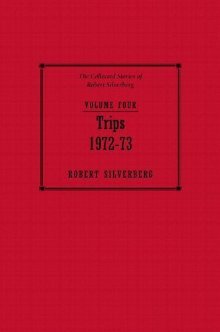Robert Silverberg - There Was an Old Woman
Here you can read online Robert Silverberg - There Was an Old Woman full text of the book (entire story) in english for free. Download pdf and epub, get meaning, cover and reviews about this ebook. year: 2012, publisher: Subterranean Press, genre: Science fiction. Description of the work, (preface) as well as reviews are available. Best literature library LitArk.com created for fans of good reading and offers a wide selection of genres:
Romance novel
Science fiction
Adventure
Detective
Science
History
Home and family
Prose
Art
Politics
Computer
Non-fiction
Religion
Business
Children
Humor
Choose a favorite category and find really read worthwhile books. Enjoy immersion in the world of imagination, feel the emotions of the characters or learn something new for yourself, make an fascinating discovery.
- Book:There Was an Old Woman
- Author:
- Publisher:Subterranean Press
- Genre:
- Year:2012
- ISBN:978-1-59606-507-9
- Rating:5 / 5
- Favourites:Add to favourites
- Your mark:
- 100
- 1
- 2
- 3
- 4
- 5
There Was an Old Woman: summary, description and annotation
We offer to read an annotation, description, summary or preface (depends on what the author of the book "There Was an Old Woman" wrote himself). If you haven't found the necessary information about the book — write in the comments, we will try to find it.
There Was an Old Woman — read online for free the complete book (whole text) full work
Below is the text of the book, divided by pages. System saving the place of the last page read, allows you to conveniently read the book "There Was an Old Woman" online for free, without having to search again every time where you left off. Put a bookmark, and you can go to the page where you finished reading at any time.
Font size:
Interval:
Bookmark:
There Was an Old Woman
by Robert Silverberg
Since I was raised from earliest infancy to undertake the historians calling, and since it is now certain that I shall never claim that profession as my own, it seems fitting that I perform my first and last act as a historian.
I shall write the history of that strange and unique woman, the mother of my thirty brothers and myself, Miss Donna Mitchell.
She was a person of extraordinary strength and vision, our mother. I remember her vividly, seeing her with all her sons gathered round her in our secluded Wisconsin farmhouse on the first night of summer, after we had returned to her from every part of the country for our summers vacation. One-and-thirty strapping sons, each one of us six feet one inch tall, with a shock of unruly yellow hair and keen, clear blue eyes, each one of us healthy, strong, well nourished, each one of us twenty-one years and fourteen days oldone-and-thirty identical brothers.
Oh, there were differences between us, but only we and she could perceive them. To outsiders, we were identical; which was why, to outsiders, we took care never to appear together in groups. We ourselves knew the differences, for we had lived with them so long.
I knew my brother Leonards cheekmolethe right cheek it was, setting him off from Jonas, whose left cheek was marked with a flyspeck. l knew the faint tilt of Peters chin, the slight oversharpness of Deweys nose, the florid tint of Donalds skin. I recognized Paul by his pendulous earlobes, Charles by his squint, Noel by the puckering of his lower lip. David had a blue-stubbled face, Mark flaring nostrils, Claude thick brows.
Yes, there were differences. We rarely confused one with another. It was second nature for me to distinguish Edward from Albert, George from Philip, Frederick from Stephen. And Mother never confused us.
She was a regal woman, nearly six feet in height, who even in middle age had retained straightness of posture and majesty of bearing. Her eyes, like ours, were blue; her hair, she told us, had once been golden like ours. Her voice was a deep, mellow contralto; rich, firm, commanding, the voice of a strong woman. She had been professor of biochemistry at some Eastern university (she never told us which one, hating its name so) and we all knew by heart the story of her bitter life and of our own strange birth.
I had a theory, she would say. It wasnt an orthodox theory, and it made people angry to think about it, so of course they threw me out. But I didnt care. In many ways that was the most fortunate day of my life.
Tell us about it, Mother, Philip would invariably ask. He was destined to be a playwright; he enjoyed the repetition of the story whenever we were together.
She said:
I had a theory. l believed that environment controlled personality, that given the same set of healthy genes any number of different adults could be shaped from the raw material. I had a plan for testing itbut when I told them, they discharged me. Luckily, I had married a wealthy if superficial-minded executive, who had suffered a fatal coronary attack the year before. I was independently wealthy, thanks to him, and free to pursue independent research, thanks to my university discharge. So I came to Wisconsin and began my great project.
We knew the rest of the story by heart, as a sort of litany.
We knew how she had bought a huge, rambling farm in the flat green country of central Wisconsin, a farm far from prying eyes. Then, how on a hot summer afternoon she had gone forth to the farm land nearby, and found a field hand, tall and brawny, and to his great surprise seduced him in the field where he worked.
And then the story of that single miraculous zygote, which our mother had extracted from her body and carefully nurtured in special nutrient tanks, irradiating it and freezing it and irritating it and dosing it with hormones until, exasperated, it subdivided into thirty-two, each one of which developed independently into a complete embryo.
Embryo grew into foetus, and foetus into child, in Mothers ingenious artificial wombs. One of the thirty-two died before birth of accidental narcosis; the remainder survived, thirty-one identical males sprung from the same egg, to become us.
With the formidable energy that typified her, Mother singlehandedly nursed thirty-one baby boys; we thrived, we grew. And then the most crucial stage of the experiment began. We were differentiated at the age of eighteen months, each given his own room, his own particular toys, his own special books later on. Each of us was slated for a different profession. It was the ultimate proof of her theory. Genetically identical, physically identical except for the minor changes time had worked on our individual bodies, we would nevertheless seek out different fields of employment.
She worked out the assignments at random, she said. Philip was to be a playwright, Noel a novelist, Donald a doctor. Astronomy was Allans goal, Barrys, biology, Alberts the stage. George was to be a concert pianist, Claude a composer, Leonard a member of the bar, Dewey a dentist. Mark was to be an athlete; David, a diplomat. Journalism waited for Jonas, poetry for Peter, painting for Paul.
Edward would become an engineer, Saul a soldier, Charles a statesman; Stephen would go to sea. Martin was aimed for chemistry, Raymond for physics, James for high finance. Ronald would be a librarian, Robert a bookkeeper, John a priest, Douglas a teacher. Anthony was to be a literary critic, William an architect, Frederick an airplane pilot. For Richard was reserved a life of crime; as for myself, Harold, I was to devote my energies to the study and writing of history.
This was my mothers plan. Let me tell of my own childhood and adolescence, to illustrate its workings.
My first recollections are of books. I had a room on the second floor of our big house. Martins room was to my left, and in later years I would regret it, for the air was always heavy with the stink of his chemical experiments. To my right was Noel, whose precocious typewriter sometimes pounded all night as he worked on his endless first novel.
But those manifestations came later. I remember waking one morning to find that during the night a bookcase had been placed in my room, and in it a single bookHendrik Willem van Loons The Story of Mankind. I was four, almost five, then; thanks to Mothers intensive training we were all capable readers by that age, and I puzzled over the big type, learning of the exploits of Charlemagne and Richard the Lionhearted and staring at the squiggly scratches that were van Loons illustrations.
Other books followed, in years to come. H. G. Wellss Outline of History, which fascinated and repelled me at the same time. Toynbee, in the Somervell abridgement, and later, when I had entered adolescence, the complete and unabridged edition. Churchill, and his flowing periods and ringing prose. Sandburgs poetic and massive life of Lincoln; Wedgwood on the Thirty Years War; Will Durant, in six or seven blocklike volumes.
I read these books, and where I did not understand I read on anyway, knowing I would come back to that page in some year to come and bring new understanding to it. Mother helped, and guided, and chivvied. A sense of the panorama of mans vast achievement sprang up in me. To join the roll of mankinds chroniclers seemed the only possible end for my existence.
Each summer from my fourteenth to my seventeenth, I traveledalone, of course, since Mother wanted to build self-reliance in us. I visited the great historical places of the United States: Washington, DC, Mount Vernon, Williamsburg, Bull Run, Gettysburg. A sense of the past rose in me.
Those summers were my only opportunities for contact with strangers, since during the year and especially during the long snowbound winters we stayed on the farm, a tight family unit. We never went to public school; obviously, it was impossible to enroll us, en masse, without arousing the curiosity my mother wished to avoid.
Font size:
Interval:
Bookmark:
Similar books «There Was an Old Woman»
Look at similar books to There Was an Old Woman. We have selected literature similar in name and meaning in the hope of providing readers with more options to find new, interesting, not yet read works.
Discussion, reviews of the book There Was an Old Woman and just readers' own opinions. Leave your comments, write what you think about the work, its meaning or the main characters. Specify what exactly you liked and what you didn't like, and why you think so.

